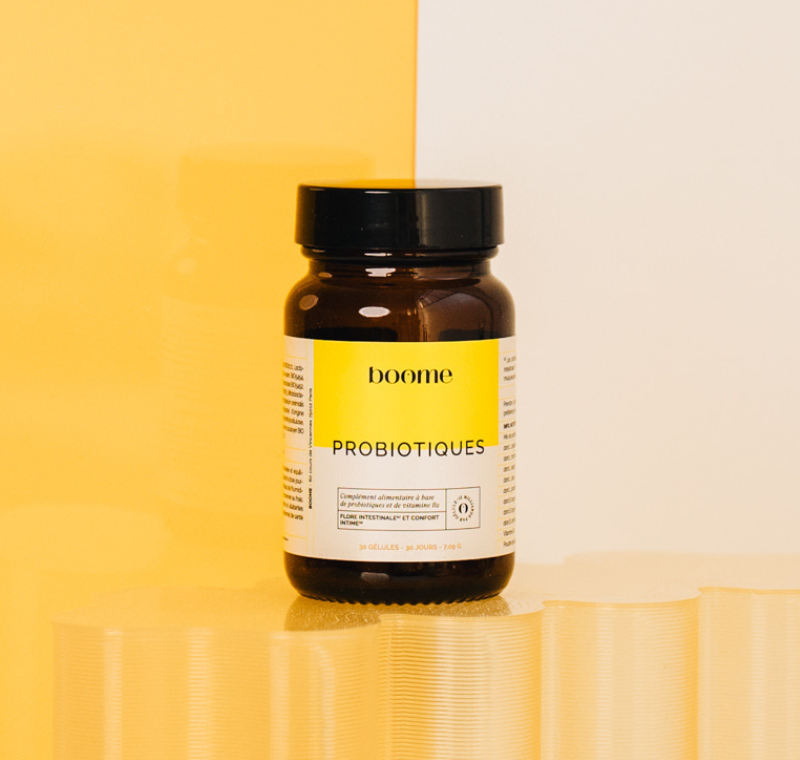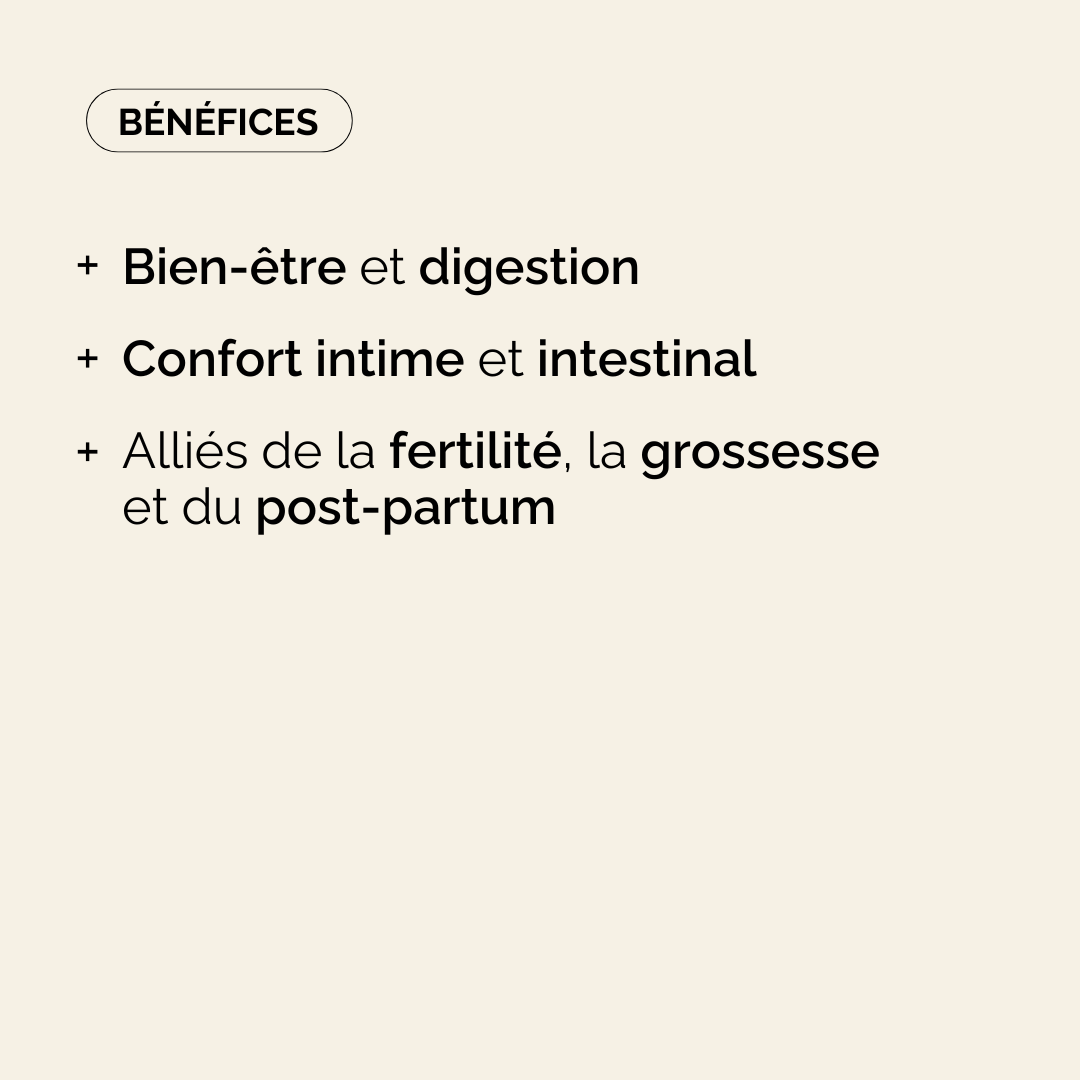
The third trimester is THE final sprint before the biggest adventure of your life: becoming a parent. Your baby is growing at breakneck speed, your body is adapting to impressive changes, and the big day is fast approaching. But how can you get through these final weeks with peace of mind? From baby's development week by week to your own physical transformations, including the essential preparations for childbirth... We'll tell you everything about this "last tempo" of your pregnancy. So you can feel 100% ready to welcome your child. Let's go!
When does the third trimester of pregnancy begin and how long does it last?
The third trimester of pregnancy begins at the 29th week of amenorrhea (or the 27th week of pregnancy). And it extends until the 40th week of amenorrhea... The official end of this sacred journey! This period therefore corresponds to the last months of pregnancy. And it is very important! Because that's it, the pregnant woman's body, as well as her baby, are preparing for childbirth. Yes, the days when you held a positive pregnancy test in your hands are long gone!
During these 13 weeks of pregnancy, the fetus reaches full maturation. This means that its vital organs (such as the brain and lungs) develop to the point where it can survive independently at birth.
For the expectant mother, this trimester can be filled with excitement... and all sorts of challenges! Hormones are raging all over the place, and preparations for the big day are underway, both medically and logistically. In short, it's the final sprint before the big meeting with baby.
How does the baby develop during the third trimester of pregnancy?
In the third trimester, the fetus refines its vital functions and prepares for birth. Each week of pregnancy brings its share of changes! Here's a breakdown of these (major) milestones.
- Week 29: Muscle and lung development
At 29 weeks gestation, your baby is gaining strength! Their muscles are developing and their movements are becoming more powerful. As for their lungs, they're slowly continuing to mature... even if they're not yet 100% functional.
- Week 30: Here come the first phases of REM sleep
During the 30th week of pregnancy, your baby's brain is changing! They're beginning to integrate more elaborate sleep cycles, including REM sleep. This is essential for their brain development and preparing for their future sleep-wake rhythm.
- Week 31: The brain matures rapidly
At 31 weeks pregnant, your baby's brain is making a giant leap in growth. Millions of neural connections are being made every day, with increasingly responsive senses.
- Week 32: Fat accumulates under the skin
From the 32nd week of pregnancy, the baby begins to build up small reserves of fat to regulate its body temperature after birth. It no longer depends on the temperature of the amniotic fluid. Its skin, which was still thin and translucent, then becomes more opaque and smooth.
- Week 33: Movements become coordinated and reflexes appear
During the 33rd week of pregnancy, your baby is becoming increasingly better at coordinating his movements with his brain. He can now open and close his hands, grasp his feet, and suck his thumb.
- Week 34: Lungs are almost ready
34th week... That's it! The baby's lungs are functioning! And his sucking reflex is becoming stronger: he is now able to feed properly from the moment he arrives.
- Week 35: Baby is positioned for delivery
From the 35th week of pregnancy, the baby is positioned head down in the uterus (most of the time). Delivery is approaching, and he knows it! During this time, he continues to gain weight. And to accumulate fat reserves for his first days of life.
- Week 36: The immune system strengthens
During the 36th week of pregnancy, your baby receives a massive transfer of your maternal antibodies, which strengthens his immune system. At the same time, his nails reach his fingertips.
- Week 37: Your baby is considered full term
Your baby is officially full-term from the 37th week of pregnancy. So, if your baby were born now, they would be able to breathe and feed on their own. But they can also choose to use the last few weeks of pregnancy to perfect their vital functions, even if their organs are already well developed!
- Week 38: Her skin is smooth and her digestion is ready
This week, your baby is almost ready to meet the world. Their skin is smooth and soft. Their digestive system is fully functional. Although, of course, they will still be dependent on breast milk or formula for a few months after birth.
- Week 39: Final adjustments
At 39 weeks, your baby is still making final preparations. He's losing most of his lanugo (the fine downy hair that covered his body) and is continuing to refine his reflexes and sensory abilities.
- Week 40: Your baby is ready to be born
Finally, at 40 weeks pregnant, it's here: your baby is completely ready to be born. His body is fully functional: brain, heart, and lungs are all working at full capacity. He's now waiting for the right moment to make his grand entrance into the world!
What changes should we expect in the expectant mother?
We admit it: the third trimester isn't always the most fun, with its share of challenges for pregnant women. Here are the main ones.
Increased fatigue
As your baby grows, you may experience more intense fatigue. That's right, they're getting heavier! Their weight puts more strain on the mother-to-be's muscles and joints, making everyday life a little more challenging.
Try to protect yourself by:
- taking regular breaks;
- limiting prolonged physical exertion;
- favoring foods rich in iron and vitamin C to combat anemia (common during the last weeks of pregnancy).
More difficult sleep
Many expectant mothers also experience changes in their sleep patterns during the third trimester. Hormones disrupt our sleep patterns, the baby moves, and we wake up frequently to pee... In short, we can quickly feel exhausted!
The only miracle cure: patience, which is essential during these last months of pregnancy. You can also:
- try to sleep on your left side to promote blood circulation;
- use a pregnancy pillow to support your belly and legs;
- establish a bedtime routine, with herbal tea and breathing exercises;
- take a course of pregnancy vitamins to boost yourself.
Digestive problems
Digestion also tends to slow down: hormones become agitated, the uterus grows and compresses the stomach and intestines. This can cause constipation and heartburn. Nothing fun, really.
To relieve yourself, try:
- split your meals (this will prevent digestive overload);
- favor a diet rich in fiber (vegetables or whole grains);
- avoid acidic or fatty foods;
- promote good hydration;
- walk after meals to stimulate digestion.
Abdominal pain
The expectant mother may also experience pain or pulling in the lower abdomen. These are related to the ligaments stretching to support the uterus. They can also sometimes be due to "false contractions."
As soon as you feel pain, think about:
- lie on your side with a pillow under your stomach;
- avoid sudden movements;
- practice gentle stretches or massages to release tension.
Heavy legs and edema
During the last trimester of pregnancy, blood volume increases. This can compress veins and cause swelling or a feeling of heavy legs, especially at the end of the day.
Some tips if this happens to you:
- raise your legs as often as possible;
- wear support stockings;
- avoid prolonged sitting or standing;
-
practice circulatory exercises (such as ankle rotations).
What is medical monitoring like during the third trimester of pregnancy?
During your third trimester of pregnancy, you're also entitled to extensive medical monitoring! Don't worry, everything is covered by health insurance.
Just like in the first trimester of pregnancy and the second trimester of pregnancy , you will need to have a growth ultrasound between the 32nd and 34th week. It allows:
- to check your baby's full growth;
- to estimate his weight and height;
- to assess amniotic fluid and placental function.
Monthly appointments are also part of your third-trimester pregnancy schedule! Your midwife will monitor:
- your blood pressure;
- your weight;
- possible signs of complications.
Finally, the expectant mother may be prescribed fetal monitoring to monitor the baby's heart rate, as well as monthly blood tests to check for toxoplasmosis.
Ready for childbirth?
The third trimester of pregnancy is THE ideal time to prepare for childbirth! Both physically and mentally. Here are our best tips for approaching your big day with complete peace of mind.
How to prepare yourself physically and mentally for childbirth?
Preparing yourself physically and mentally for childbirth also reduces stress and makes future labor easier. So, why skip it?
Breathing techniques will be your best ally for this. They will help you better manage pain and stay relaxed (as much as possible!). You can try abdominal breathing, often taught in childbirth preparation classes.
Also consider relaxation and visualization, which can be a real boost. How? For example, by taking a few minutes each day to imagine a successful delivery.
On the physical side, you can add some tailored exercises to your routine, such as pelvic-opening positions or using a pregnancy ball. These movements will help you improve your flexibility and therefore better prepare your body for childbirth. Walking and gentle stretching are also very beneficial!
When should you go to the maternity ward and with what?
THE question everyone's asking, isn't it? Because yes, certain signs can put you on the trail of "It's here, it's now, let's go!!" You just need to know how to recognize them. So, go to the maternity ward if:
- you feel regular and close contractions;
- your waters break;
- you feel the baby's movements less.
On the other hand, don't forget your maternity suitcase ! In which you could have slipped:
- For you: underwear, toiletries, loose pajamas/nightgown and your administrative documents.
- For your baby: bodysuits, pajamas, diapers, hats and blankets.
Extra tip: add snacks and drinks to give you energy once you get there.
In short, the third trimester of pregnancy is the final stretch before your baby's arrival. But this period can sometimes be as exciting as it is demanding! With the support of your midwife and your loved ones, you'll be ready to welcome your child in the best possible conditions. Trust yourself: the long-awaited moment is almost here... And it's going to be amazing!









